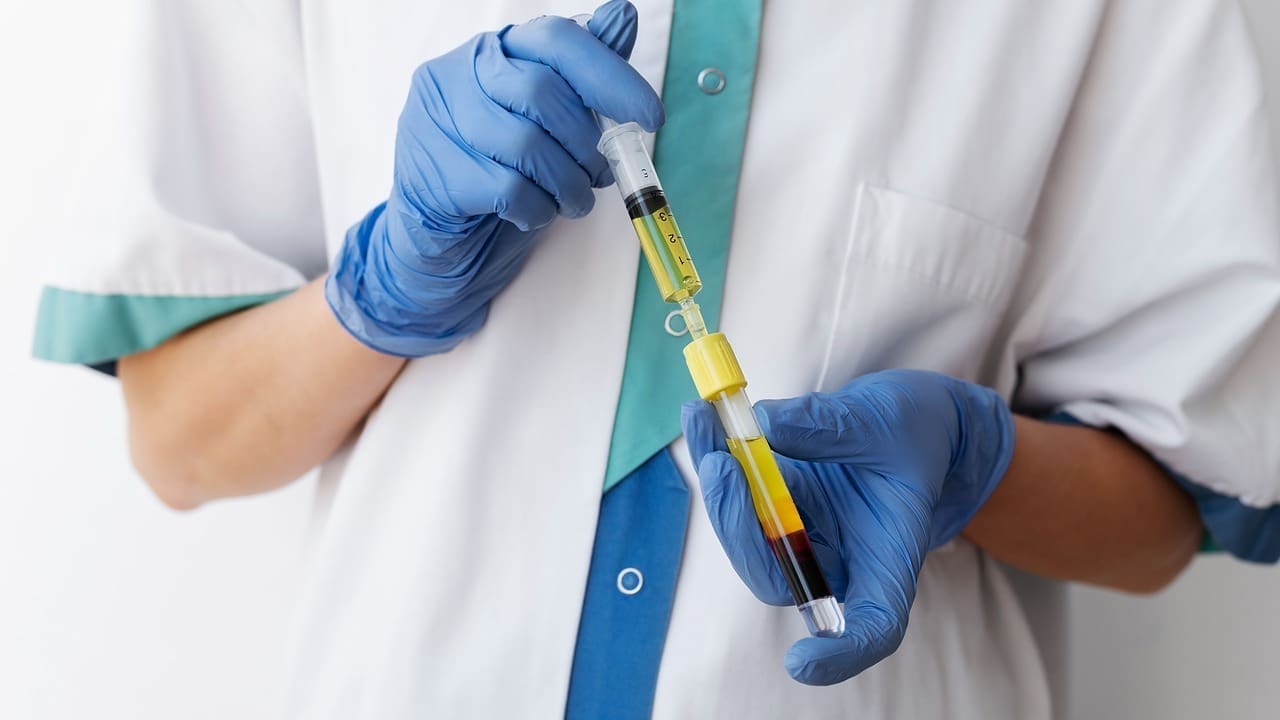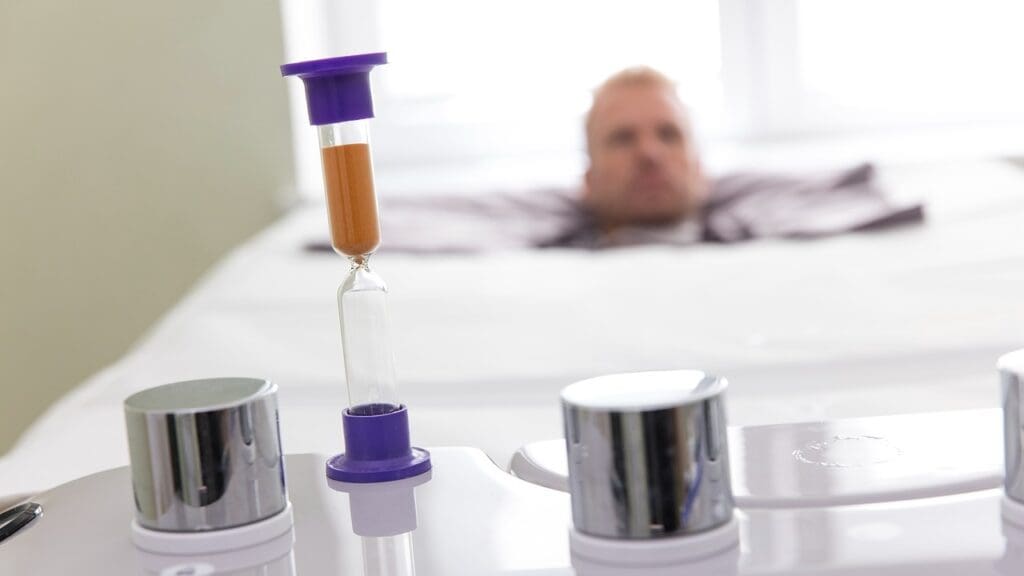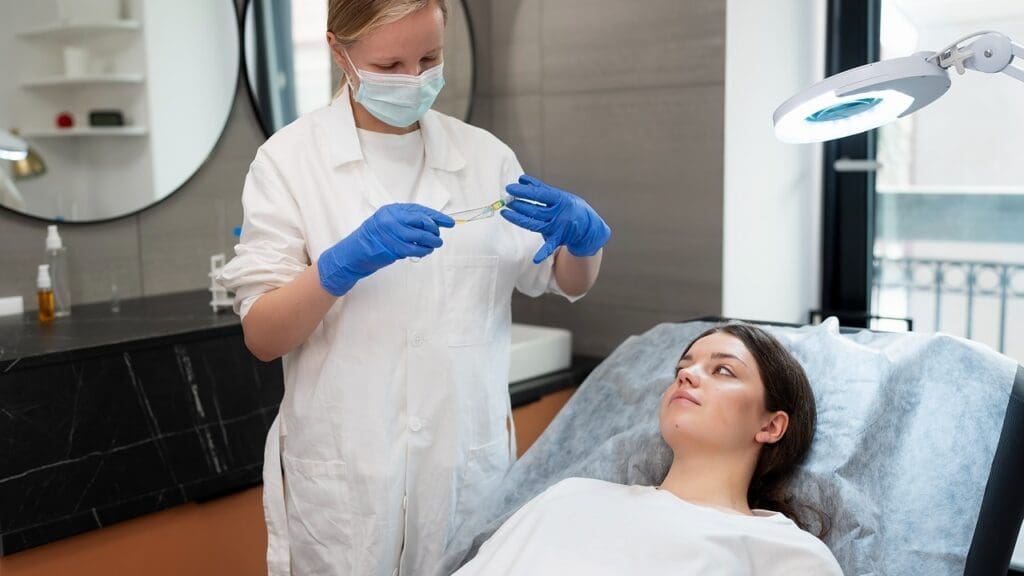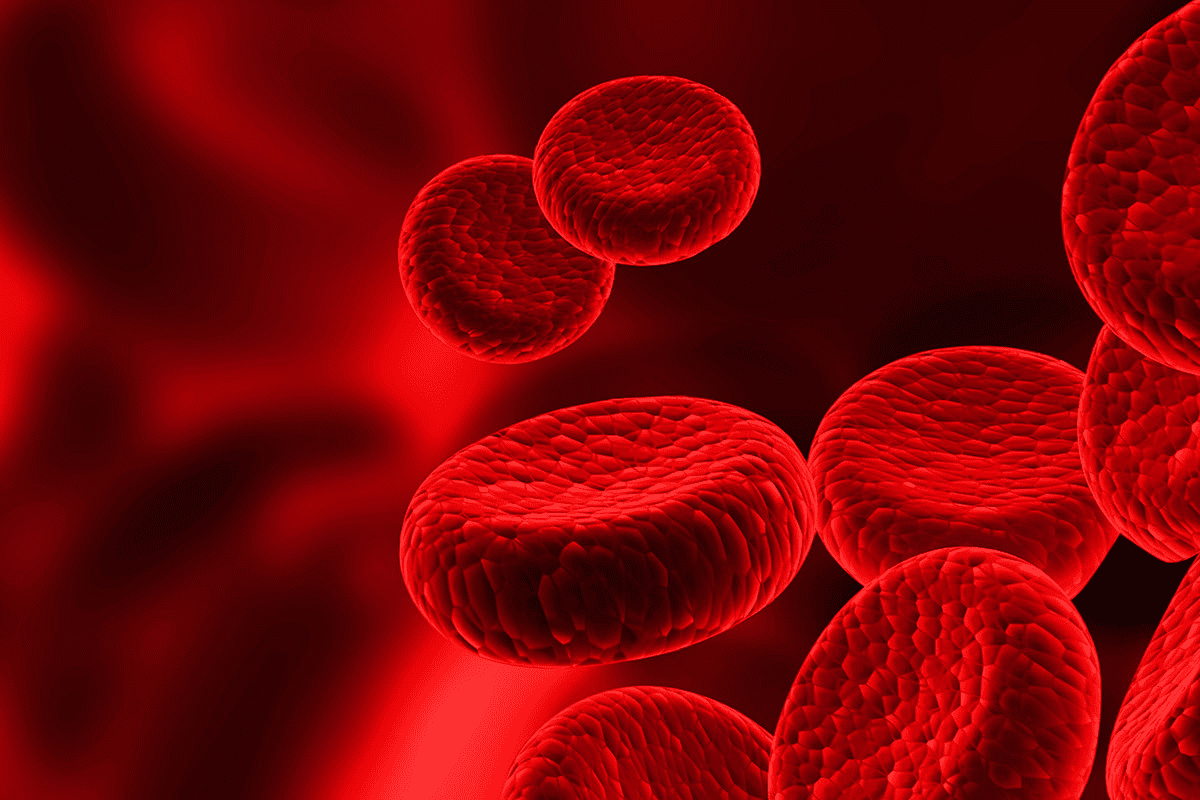Last Updated on November 27, 2025 by Bilal Hasdemir

We are on the verge of a big change in cancer treatment. New cancer injection vaccines are leading the way. These vaccines, based on RNA, have shown great promise in trials. They offer hope to patients and change the future of cancer care. At Liv Hospital, we aim to give top-notch healthcare to all, including international patients.
There are over 120 trials worldwide for these treatments. They could greatly change oncology. Breakthrough cancer vaccines are being made, like personalized ones. They might help lower recurrence and extend life. Our focus on innovation and patient care makes these advances possible.
Key Takeaways
- Seven breakthrough cancer injection vaccines are leading oncology in 2025.
- RNA-based cancer vaccines have shown remarkable promise in clinical trials.
- Over 120 active trials worldwide are testing the efficacy of cancer vaccines.
- Personalized cancer vaccines are being developed to reduce recurrence and prolong survival.
- Liv Hospital is committed to providing world-class healthcare with complete support for international patients.
The Revolution of Cancer Injection Therapies in Modern Oncology
Recent breakthroughs in cancer injection therapies are changing the face of modern oncology. We’re seeing a big change in how cancer is treated. New therapies are giving patients around the world new hope.
The Paradigm Shift in Cancer Treatment Approaches
Cancer vaccines, like those using RNA technology, are leading this change. They target specific cancer cells, making treatment more precise. These vaccines also aim at cancer stem cells, which are key in starting tumors and fighting off treatments.
Understanding How Cancer Vaccines Work
Cancer vaccines boost the immune system to fight cancer cells. They can be used to prevent cancer or treat it, making them a flexible tool in cancer care.
Preventive vs. Therapeutic Applications
Preventive vaccines try to stop cancer before it starts. Therapeutic vaccines aim to treat cancer that already exists. Both are vital in the battle against cancer.
| Vaccine Type | Application | Benefits |
|---|---|---|
| Preventive | Stop cancer before it starts | Reduce cancer incidence |
| Therapeutic | Treat existing cancer | Improve survival rates |
We’re at the edge of this revolution, with ongoing research to better cancer vaccines and treatments. The future of oncology is bright, with these advancements opening up new ways to treat and help patients worldwide.
The Current Landscape of Cancer Vaccine Research
We are seeing a big change in how we treat cancer, thanks to new research. Many clinical trials are underway. They are looking at different types of cancer vaccines, like “cancer vac” and “vaccine cancer” therapies.
Over 120 Active Clinical Trials Worldwide
Right now, over 120 clinical trials are happening all over the world. They are testing different ways to fight cancer with vaccines. New tools like single-cell sequencing and multiomics integration are helping us make better vaccines.
Key Advancements in RNA-Based Technologies
RNA-based technologies are leading the way in cancer vaccine research. They are showing great promise in fighting different cancers. These technologies help create strong immune responses against cancer cells.
Four-Year Immune Persistence in Pancreatic Cancer
Some mRNA-based cancer vaccines have shown they can keep the immune system strong for up to four years in pancreatic cancer patients. This is a big deal because pancreatic cancer is very hard to treat. As one expert said,
“The development of cancer vaccines has reached a critical juncture, with mRNA-based therapies showing great promise for improving patient outcomes.”
This shows that cancer vaccines could really change how we treat cancer.
We are excited to keep working on new cancer vaccine strategies. We want to use the latest technologies to help patients more. The progress in cancer vaccine research shows how hard scientists and doctors are working to find better treatments.
mRNA-4157 (Moderna/Merck): Transforming Melanoma Treatment
The mRNA-4157 from Moderna and Merck is a big step forward in fighting melanoma. This vaccine helps the immune system find and destroy cancer cells. It gives hope to those with this tough skin cancer.
Mechanism of Action and Personalization Approach
mRNA-4157 uses messenger RNA to show the immune system what cancer cells look like. It makes it easier for the immune system to fight melanoma. The vaccine is made just for each person, based on their cancer, to work even better.
Clinical Results: 44% Reduction in Recurrence Rates
Tests have shown mRNA-4157 can cut melanoma recurrence by 44%. This is a big win for patients, showing the vaccine can help them live longer. These results are very encouraging for cancer research.
Patient Selection Criteria and Administration Protocol
People with high-risk melanoma might get mRNA-4157. The vaccine is given in shots, with a plan to boost the immune system. Doctors and patients work together to find the best treatment plan.
We’re excited about mRNA-4157 and other cancer vaccines. We’re dedicated to top-notch healthcare for patients from around the world. We support them in getting the best medical care available.
BNT122 (BioNTech): Pioneering Personalized Cancer Immunotherapy
BioNTech’s BNT122 is changing cancer treatment with a new approach. It uses individualized immunotherapy to target each patient’s cancer. This method is based on the unique genetic makeup of each cancer.
Individualized Neoantigen Specific Immunotherapy (iNeST)
BNT122 identifies and attacks specific proteins on cancer cells. This makes the immune system better at fighting cancer. The iNeST method is a big step forward in cancer vaccines, making treatments more precise and effective.
Applications in Multiple Cancer Types
BNT122 is being tested for different types of cancer. Its ability to be customized for each patient makes it promising. Ongoing studies will show how wide its use can be.
Ongoing Trials and Preliminary Efficacy Data
Trials for BNT122 are ongoing, with early results looking good. These trials are key to proving BNT122’s safety and effectiveness.
As research goes on, BNT122’s role in changing cancer treatment is clear. It’s leading the way in personalized immunotherapy, giving hope to patients and doctors.
ELI-002 2P: The Off-the-Shelf Cancer Injection Solution
ELI-002 2P is a new way to fight cancer with an off-the-shelf injection. It’s a vaccine made to target specific cancer mutations. This could help patients with different types of cancer.
Targeting KRAS Mutations in Pancreatic and Colorectal Cancers
ELI-002 2P is made to attack KRAS mutations in pancreatic and colorectal cancers. It aims to start an immune response against cancer cells.
KRAS mutations are common in many cancers. ELI-002 2P targets these mutations. This gives hope to patients with few treatment options.
Immune Response Metrics and Survival Benefits
Clinical trials show ELI-002 2P boosts the immune system in patients. This is key to measuring its success. It also shows survival benefits, helping patients live better.
ELI-002 2P boosts the body’s fight against cancer. This not only increases survival chances but also improves life quality for those being treated.
Accessibility Advantages of Non-Personalized Approaches
ELI-002 2P is easy to get, helping more people. It’s different from personalized vaccines that take a lot of time and effort to make. ELI-002 2P is ready to use.
This non-personalized method makes treatment easier. It lets more patients get the vaccine without waiting. It’s a big step towards making cancer treatment more available.
CUE-101: Precision Immunotherapy for HPV+ Cancers
CUE-101 is a big step forward in treating HPV+ cancers. It’s made to target cancers caused by HPV16, giving hope to those with certain head and neck cancers.
Selective Targeting of HPV16-Driven Malignancies
CUE-101 is made to attack cancers caused by HPV16. This is a big part of head and neck cancers. It works by focusing on specific parts of HPV16, keeping healthy cells safe.
Clinical Performance in Head and Neck Cancers
Early tests show CUE-101 is working well against HPV16-driven head and neck cancers. It boosts the immune system, helping patients with tough cases.
Combination Therapy with Checkpoint Inhibitors
CUE-101 could be even better when used with checkpoint inhibitors. This combo might make treatments more effective. Researchers are finding the best ways to use these together.
We’re excited about CUE-101’s future. It could really help people with HPV+ cancers. With its targeted approach and good results, CUE-101 is a big leap in cancer treatment.
ADXS-503: Advancing Treatment for Non-Small Cell Lung Cancer
ADXS-503 is a big step forward in treating non-small cell lung cancer. It uses a Listeria-based vaccine technology. This tech has shown to boost the immune system against cancer cells.
Listeria-Based Vaccine Technology Platform
The Listeria-based platform in ADXS-503 targets cancer cells without harming healthy tissue. This method uses the body’s immune system to fight cancer. It could lead to more effective and precise treatments.
Efficacy Data in Previously Treated NSCLC Patients
Clinical trials have shown ADXS-503 works well for patients with NSCLC who have tried other treatments. The therapy has shown to increase survival rates and sometimes shrink tumors. This is good news for those with few treatment options.
Safety Profile and Quality of Life Considerations
The safety of ADXS-503 has been a major focus. Clinical data show it’s mostly safe, with most side effects mild and short-lived. This is important for keeping patients’ quality of life during treatment.
Research on the microbiome and its role in cancer treatment is growing. Therapies like ADXS-503 are leading the way in a new cancer treatment era. By using the immune system and new technologies, we’re getting closer to shots for cancer that can greatly improve patient results.
CVnCoV (CureVac): RNA Technology Beyond COVID-19
The development of CVnCoV by CureVac is a big step. It shows how RNA vaccine tech can move from COVID-19 to fighting cancer. This new use builds on mRNA vaccine success and aims to help in cancer treatment.
Adapting Pandemic Vaccine Technology for Oncology
CureVac’s CVnCoV leads in adapting mRNA tech for cancer. It uses mRNA to target cancer-specific proteins. This method could help fight cancer by boosting the immune system.
Target Cancer Types and Mechanism of Action
CVnCoV is made to fight different cancers by focusing on cancer-specific proteins. It works by making the body produce these proteins. This triggers an immune response against cancer cells.
Manufacturing Scalability and Global Access
CVnCoV’s big plus is its ability to be made in large amounts. This tech can quickly produce and change to target different cancers. It’s a hopeful solution for tackling global health issues.
| Feature | Description | Benefit |
|---|---|---|
| mRNA Technology | Encodes for tumor-associated antigens | Targets specific cancer cells |
| Scalable Manufacturing | Rapid production capabilities | Global access to cancer vaccines |
| Adaptability | Can be adapted to various cancer types | Potential for broad applications in oncology |
As we look into RNA tech for cancer, CVnCoV is a standout. Its creation shows mRNA vaccines’ wide range and power in tackling tough medical problems.
The Promise of Universal Cancer Vaccines: Myth or Reality?
Cancer research is making big strides, making universal cancer vaccines seem more real. We’re learning more about cancer and finding new ways to treat it. The idea of a vaccine that works on many cancers is a big focus for scientists.
Current Research on Pan-Cancer Antigens
Researchers are looking for antigens that are found in many cancers. They’ve found some promising ones, like those mentioned in this study. These could lead to vaccines that fight many cancers at once. This could change how we treat cancer, making it more effective.
Technical Challenges in Developing Universal Solutions
Even with promising research, there are big technical hurdles. We need to make sure these vaccines are safe and work well for everyone. Making them also requires careful steps in manufacturing and checking their quality.
Timeline Projections for Broader Applications
It’s hard to say when we’ll have these vaccines, but scientists are hopeful. They’re working hard in clinical trials and improving technology. As we keep moving forward, we’ll see these vaccines tested more widely. This could lead to big wins in fighting cancer.
Comparing Cancer Injection Effectiveness Across Different Cancer Types
It’s important to understand how well cancer injections work for different cancers. When we look at cancer vaccines, we see they don’t work the same for all cancers.
Response Rates in Solid vs. Hematological Malignancies
Cancer injections work differently in solid tumors and blood cancers. For example, mRNA-based vaccines are promising for solid tumors like melanoma. But, their effect on blood cancers like lymphoma is being studied.
Predictive Biomarkers for Treatment Success
Finding biomarkers is key to knowing if a oncology vaccine will work. Biomarkers like PD-L1 and tumor mutational burden help predict how well a patient will respond. This helps doctors tailor treatments better.
Combination Therapy Approaches Enhancing Efficacy
Using cancer injections with other treatments, like checkpoint inhibitors, might make treatments more effective. This combination therapy approach is being tested in many studies. It gives hope to patients with various cancers.
As research keeps going, we’ll learn more about how well cancer injections work for different cancers. This will help create more targeted and effective cancer vacine treatments.
Conclusion: The Future Landscape of Cancer Vaccination
The future of cancer vaccination looks bright. New methods are being explored to fight cancer. At places like the MD Anderson Surgical Oncology department, scientists are leading the way. They offer hope to those fighting cancer.
Significant progress is being made in cancer treatments. This includes personalized treatments and vaccines that work for everyone. These advancements are changing how we fight cancer.
As research keeps improving, so will the treatments for cancer patients. New technologies like RNA-based therapies are leading the charge. We’re dedicated to top-notch healthcare for patients from around the world.
The hard work of researchers and healthcare teams is paying off. These innovations will shape the future of cancer treatment. They promise better care for patients.
As we look ahead, cancer shots will become a key part of treatment plans. This will greatly improve patient care. The future of cancer treatment is bright.
FAQ
What are cancer injection vaccines?
Cancer injection vaccines are a new way to fight cancer. They use vaccines to help the body’s immune system find and destroy cancer cells. This method can be used to prevent or treat cancer, giving patients new hope.
How do RNA-based cancer vaccines work?
RNA-based vaccines use genetic material called messenger RNA (mRNA). This mRNA tells cells to make a specific protein. The immune system sees this protein as foreign, leading to an attack on cancer cells.
What is mRNA-4157, and how is it used in cancer treatment?
mRNA-4157 is a vaccine made by Moderna and Merck. It’s a personalized vaccine that targets specific cancer mutations in a patient. Early trials show it’s effective, mainly in treating melanoma.
What is the difference between personalized and off-the-shelf cancer vaccines?
Personalized vaccines, like mRNA-4157, are made for each patient’s cancer. Off-the-shelf vaccines, such as ELI-002 2P, target common cancer mutations. This makes them available to more people.
Are cancer vaccines a replacement for traditional cancer treatments?
No, cancer vaccines are not a replacement for traditional treatments. They work alongside surgery, chemotherapy, and other treatments. This combination can make treatments more effective.
What are the benefits of using cancer injection vaccines?
Cancer vaccines offer several benefits. They can lead to better treatment results, lower recurrence risk, and fewer side effects than traditional treatments.
What is the current status of universal cancer vaccines?
Researchers are working on universal cancer vaccines. These vaccines aim to fight many types of cancer. This research is promising for future cancer treatments.
How do cancer vaccines compare in terms of effectiveness across different cancer types?
The success of cancer vaccines varies by cancer type. Some vaccines work better for certain cancers. Researchers are studying what makes them effective.
What is the role of combination therapy in cancer vaccine treatment?
Using cancer vaccines with other treatments, like checkpoint inhibitors, can boost their effectiveness. This approach is being tested in clinical trials.
Are cancer vaccines available globally?
Some cancer vaccines are being tested worldwide, but availability varies. Efforts are underway to make these treatments accessible globally.
What is the future outlook for cancer vaccine research?
Cancer vaccine research is looking bright. Advances in RNA technology, personalized medicine, and combination therapy are promising. We can expect better treatments in the future.
References
- National Center for Biotechnology Information (NCBI) / PMC: https://pmc.ncbi.nlm.nih.gov/articles/PMC12153701/
- Worldwide Cancer Research: https://www.worldwidecancerresearch.org/news-and-press/news-and-press/new-type-of-cancer-vaccine-could-stop-cancers-before-they-come-back/
- MedTour Help: https://medtour.help/cancer-vaccines-a-breakthrough-expected-in-2025/
- American Association for Cancer Research (AACR): https://www.aacr.org/blog/2025/01/10/experts-forecast-cancer-research-and-treatment-advances-in-2025/








